Fanny HillChapter 7
- 2 years ago
- 25
- 0

Jón and I made it back to the castle a bit before lunch and we had a chance to see Helga to iron out some details.
Helga smiled and said, "What trouble are you in now? I know you want my help."
"You are just too smart. I want to meet the rest of the smiths in the city. If I go to each of them my jaw will be sore. If they come here to taste your cooking then I will only have to tell them once. Usually they would ask questions and then everybody will hear the answers and possibly think of more."
"What are you getting them to do for you?"
"I make steel and I want them to make some too. Swords are good but I want steel armour. It will be better than iron or bronze. Our men will then be safer."
"Just tell them to make it. They will do what you want."
"They don't know how to make steel yet. Then I have to show them how to make the steel hard. They have to be convinced to try this. I have an idea for you too."
"I am not going to make your iron."
"No, not that. You dry and cure meat so we can use it over the winter. If I gave you some silver could you hire some people to do a lot more?"
"Why, we usually have enough?"
"There are two reasons. The first is that father may need some supplies and we can make them for them. If they have to hunt and cook they may not be able to eat well. Your cured sausage would keep them fed and alive.
The second reason is that a lot of refugees have come to our city. The Picts chased them here and that is what the Picts wanted to happen. We feed a lot of people and if we have to feed more I will not want to turn anybody away. This means that we lay aside more food. If more people flood into our city then we will need even more. I am just trying to make sure that we are not only both alive but healthy when spring arrives."
"If there are too many then just not let people enter the city in the first place."
"Then I want you at the gate to tell a woman that she and her children are not wanted." Helga said nothing and looked to one side. "It doesn't sound like you would want to do that. Better to set aside more food now. Dried meat and cured sausage sound easy but they are hard to make and difficult to make so they keep. Do you know somebody that can take care of this for you?"
"Who will hunt?"
"Hunting is not a chore. Fálki would send out a hundred hunters but you could not deal with all the meat."
"There are some people that make good sausage. I will see if they will help me."
"Thank you, Helga. You will not regret this."
"There is a lot of work to do and you better make sure you help."
The smiths came in but at scattered times. Being prompt was not a thing that any barbarian thought of doing. Some may come by in a week and wonder why I was not here to greet him. Two of the larger smiths and one of the smaller were the only ones that came. I held off my spiel but had to start it eventually. I had one of Sander's clay jars and lids on the table and I explained the secrets of making blister steel.
Nobody interrupted me because this was new to them. I stressed the importance of the sealed jar and the way the charcoal had to be crushed fine to make better contact with the metal.
I was asked about the time taken and said, "It depends on the heat you use. The hotter it is the more of the charcoal will enter the iron."
One smith said, "I have some iron that is too brittle to use. Is this what you are making?"
"Not at all. Break this iron up and mix it with hot iron. Fold it over and over again to mix the charcoal in the iron better. Eventually you will get steel. One day I will be making that iron for tools but it has to be made into a liquid then cast into the shape you want. This is the same way as you cast bronze or brass."
"Nobody can melt iron. I have tried."
"It can be done but it requires a lot of work. You need a very large kiln. Instead of normal air being pushed into it, it has to be heated first. This is done with two large brick tunnels. Charcoal is burnt and a bellows pushes the heat through one set of bricks. The bricks get hot after a while. When they are near the hottest they can get you push the hot smoke through the other set of bricks."
"What will this do except make hot bricks?"
"You push clean air through the tunnel of hot bricks to get hot air. This goes into the large kiln to make it even hotter than anybody got before. When the bricks cool off too much the other tunnel is used while the one you left is heated again. The trick is getting enough air into the kiln. You could use a lot of people with a lot of bellows or you could use a water wheel to operate the bellows."
"I have heard of a water wheel but that just turns around. How can it make the bellows go up and down?"
Jón took his plate and put it on its side. "This is attached to the water wheel and it will turn with the wheel. If you put a large peg into the wheel and a wooden bar from that peg to the top portion of the billows, then the billows will go up and down too."
It took a great deal of explaining but in the end they saw how a rotating wheel could produce reciprocating motion. When Jón was done he said, "I have shown you how to melt iron but that is still not enough. Charcoal is made from wood that is baked. Water and many things are cast off from the wood as it is heated. The same thing can be done to coal. You will get coke instead. This is even better because it will make the fire hotter still.
"I called you all here to tell you how to make steel then after it is formed to make it hard. I want the large kiln built but not in the city. It is too dirty and the air that comes off can make you sick.
"If many people go out and collect iron and make it into blister steel then some of us can turn the steel into armour and weapons. Steel is stronger than iron and much harder too. I would like to buy the steel from you. Are any of you interested in making this for me?"
One of the owners of a larger smithy said, "I have enough work to do without wasting my time with this. My iron is good enough."
"Will you sell me your iron in thin sheets so I can make it into steel?"
"I would have to go out more and make more charcoal."
"Yes, and you would make more silver."
"That is too much work."
"You can hire others to harvest the trees and to collect the raw iron. You could even hire a boy to operate the bellows when the one you have is tired. You pay the boy from the extra silver you make."
"I am not interested."
"Then thank you for your help. You asked questions that the others thought of and helped make my ideas clearer." Turning to the others, Jón asked, "Are you interested in selling me steel or iron?"
It was the owner of the smaller operation that asked, "How much are you offering?"
"Are we talking about iron or steel?"
"Ah... steel; I guess."
"I will deal in talents of steel then. For each weight I will give you four silver pennies."
"That is not much. I can make much more."
"You make a sword but it takes a lot of time to hammer it out. You have less work to do by selling me just raw steel. You are not selling just one sword but hundreds. Surely if I went to you and asked for a hundred swords I would get a cheaper price than just one sword bought a hundred times."
"How many talents do you need?"
"A hundred at least for a start. If you hire people to help you then the profit is lower but you get your silver quicker."
Jón took out his k-bar and put it on the table with the point aimed away from everybody. "This is a steel knife. Tell me if you could make one as good out of iron?"
The man admired the knife then looked at Jón. The boy nodded and the man picked it up. He ran his thumb along the blade then hit the table edge with it. It went in deep and when the knife was removed the edge was checked.
"Is this what you used?"
"My sword mostly but this too. If we go to your forge, we will see what it does to bronze armour? You will find it goes through easily. It will also go through a man. I am not strong but my sword took off two heads. A full grown man could make a steel sword cut through an enemy. The edge stays sharp longer. The blade is thinner and easier to wield. When an iron sword will bend, a steel one will do so much less but it will come back to its original shape. I am telling you that steel will be what you will make in the future. Your work now will last longer. This may not sound good but more people will come here looking for the tools you make out of steel."
The man fingered the knife a lot and then put it down. "I think I will make some steel even if it is just to make a knife like this."
"Make a sword too. Then test it. With a bit more work you can make some armour. Think of the warriors that will come flocking to you to be fitted."
"I could do that but you would make nothing. Why are you suggesting that I do this?"
"You are mistaken. I will make something. I will have a warrior that is better armed than anybody in the history of the world. He will go out and kill our enemies in such numbers that they will never come back here again. I want to see my people live free."
"This steel is that good?"
"My word is not what you should take. Make some steel and see for yourself. My suggestion though is to get lots of iron and charcoal because you will not be able to keep any tools for show. They will be purchased as soon as they are complete."
This meeting looked to be a flop. Jón should have let me put out the steel products we made and let them decide what steel was really like. They did have the basics though.
The dishes were now being taken away from the table Jón had been using. He carried some of them into the kitchen to help out. Jón was doing a lot of odd things when seen from the perspective of those around him but it seemed natural enough to me.
Watching the women wash dishes I suggested to Jón. "Why not have a large tub made by the coopers? "You can have a bath and even stretch out. You need some additional metal pots for heating water and there is still the commitment to make tools for the bootmaker. Rudi will need more too."
"I guess we better get started then."
Jón went back to the forge. The children were all using the steel to make things and most of those were the needles. Even the new ones were doing a fair job. Instead of making some tools, Jón put a lot of raw iron into the forge. Then he added even more. I didn't ask but there could only be a few things it could be.
Dolf was put on the bellows and had to work harder because the metal had to get hot. Jón took the lumps and with Epje holding the tongs welded the lumps together. Soon it got so heavy that the men had to move the large lump into the flames and then out again to add more metal to it. Eventually it was put on the stone floor to be worked.
More and more iron went into the fire and eventually the new anvil was worked at the edge of the forge. The men started to question the size but Jón said, "A large anvil works just as good as a small one but can also handle large jobs. I am sure that we will be making some large tools."
The men and some of the children had a chance to get tired forming the anvil. Feet were welded into place but they may not keep it from rocking. A horn was in place but not very large. Some of the steel was now built around the horn and this was built up with many layers. The top surface got three layers of steel and it was used to extend around the sides.
Jón had obviously seen the images in my memories and was building the best he could. There was simply too much work to do and too little time. Everybody went to bed but Sander had to take first watch over the steel being made. He didn't seem to mind doing a few extra hours at night.
The anvil was still hot the next morning but it could be used. After a breakfast they all hurried back and began making more of the small things that would cost so much because of their fine details. The three sizes of awls were made and the children made theirs too. They would be using them when making their own saddle.
Forni and Dina hadn't minded the bootmaker but this was probably due to the newness of the situation. They had gone off on their own right after breakfast to start their duties.
Epje and Klaasje went to fetch some larger pieces of wood to complete the wood lathe. The legs, wheel and treadle was all they had. When the tree trunk came back it had to be squared off on two opposite sides then chisels used to make a hole down the middle of it. A saw was then used to cut two parallel cuts. When this was done the files and chisels cleaned up the edges. One large chisel worked like a plane to make the top and bottom surfaces parallel and flat. The tailstock would get anchored through the slot in the middle and a wedge would lock it in place where it was needed.
The headstock had to be designed but it too could have to be made to move so that it could also turn large bowls off the end. Bushings had to be designed and moulds made but the forge had to stay another day to complete the job of making steel.
Jón was very tired when lunch came but he was building up some muscle too. Instead of going back to the forge I convinced him to check on the coopers. When Jón arrived the oldest member hurried to him and said, "I thought you were coming yesterday, milord."
"I was very busy and you had to get a smith to make the metal hoops. The smiths are not the fastest at doing a job either."
"I have found that out too. They are very unlike our guild."
Jón said nothing about this but did say, "I want a large tub made just like the lower half of a barrel. You can make a stave at each side longer to form a handle for carrying."
"Will it have to have a metal hoop?"
"Yes, one at the top and one at the bottom." He went on to give the dimensions.
The cooper was incredulous and said, "We have never made a tub that large before."
"In years to come this will be just a small one. We need many large ones and even barrels that are well over the height of a man."
"For beer?"
"Some and others for wine but I want a very large one to be placed on the top of a building I want to make. It will hold water." Jón gave some measurements and I saw that this was in the range of ten tonnes."
I said to Jón, "That is heavy for that structure."
"Then we build the granary stronger. We are already putting hoops around it like the barrels. We can brace it inside too."
"That should work."
The cooper too was astonished and Jón stayed until he got a preliminary quote for the construction.
The small barrel was easily disassembled and Jón and I looked at the construction. He said, This is well made but it is still too weak. The staves will have to be thicker and the top and bottom much thicker."
"I would build better if I knew what it would contain."
"That may be true but I will not tell you yet. Has the barrel you made been taken yet? Fálki was going to make sure it got delivered."
"Yes it did. I added one more notch to the tally stick. What am I to do with this barrel?"
How much will you sell it to me for?"
They came to a quick deal and Jón would have to return later to pick it up and probably make comments on the second version when it was done.
Things got more and more hectic as the days rolled by. Fálki was on many of the patrols and Albrecht was given some of the duties. His prince didn't seem to be interested in leaving or even interested in seeing his men. Albrecht now had a chance to make some silver.
The job of making the granary caused a big stir in the city simply because of its size. Shovels with steel blades were used and the soil shovelled into wheelbarrows. The wheelbarrows were another new invention that had a lot of tongues wagging. The steel wheel, axle and brass bushings made it easy to move.
A few days later a large steel scoop was made that was pulled by a horse with a collar. A man was at the other end holding two long poles. If he picked up just a bit then the leading edge of the scoop bit into the earth and soon filled the bucket. When full the man pushed down and the horse dragged the scoop to where it could be dumped.
Thick stone began to arrive and it was put into place. Wood arrived too and was put to one side. At the same time the farmers were contacted and offered silver for their grain. Germany could be very productive but grain still rotted because it was not dried well or rodents got to it first. The drying had to be done and the type of granary would keep the rodents out.
Jón avoided the granary as much as possible. It was going up well but they always asked questions of him that could be answered if they bothered to think of it. He spent much of his time talking to everybody and about every conceivable subject. He was trying to find out about what we truly needed to know. Sulphur or what was known as brimstone was asked about but it was used in relation to destroying wild yeast strains in used wine barrels. Other minerals I required were asked about too. All were needed but not all of them for making black powder.
One old man knew of some on some land that his family had abandoned as a child. One more farm had passed through their hands and they were now on their third. It could not continue to support all the demands on it. The sulphur though was important.
Animals were discussed and their habits but always bats were mentioned. This lead to bat caves. The land in this area was mostly flat and had little chance to find a cave that was not filled with water. Bats though had been seen but none had found where they lived. Further to the south though there were hills and the Harz Mountains were in the south of Germany.
The various ores of iron were discussed even one that stuck to iron tools but nobody seemed to remember seeing these ores. The same thing was mentioned about silver, copper and tin but if they had known of these then they would have been mined. Anthracite coal was described and then bituminous. Some of this was seen but the locations were vague and it was usually small pieces not actual deposits. Finally lakes or streams of a thick black liquid were asked about. This seemed to be different and some reference to a wide area were talked about but nobody had actually been to this area only heard about it.
The large barrels I had ordered were used to store the grain that was purchased and there were quite a few of them. The lime was used to make a poor type of cement that went between the large stones and the floor itself. A ditch around the granary ensured that any water build up would be noticed and dealt with before the grain became affected. A sewer would be better but there was none.
Jón practised with his swords and knives a lot more now and the children were being taught some of what he knew. The newcomers were now integrated but it would take more time before they were normal. Hafgan had to be taken in hand. He still looked for somebody to protect him and many men saw his beauty and wanted him for themselves there was some trouble with the boys in the group too but not much.
Hafgan usually slept with the boys and they went out of their way to make sure that he knew his was accepted. The girls did the same thing and called him their brother.
Sander made a large mould for the mortar without knowing what it was for. The clay for the mould had been fired then coated with a fine mud and fired again to get the finish the best it could be.
Fálki and a dozen of his most trusted men sorted the scrap bronze from the good. This was not important but he wanted them in on the very start of the project. The mortar was cast but it was thicker than needed just for safety. Strength was important and bronze cannons blew up less than iron ones. One day my steel ones would be much safer.
The wood lathe helped make another lathe. Over a period of time another one was made but this one worked vertically. The mortar was hung, mouth down and lowered slowly onto a revolving steel bit. After many light passes the barrel looked good.
Soft iron spheres were made to fit the mortar but that was just to check the size because they would go into the larger cannon that we were making.
The cannon was made in the open but nobody knew what it was for. A lot of questions were asked but the story of it being used to break down city gates with its weight alone and this was accepted. The cannon was fitted to a very sturdy carriage and this was attached to the one that would carry powder and shot. Small lightweight saddles were put on the team that was doing the pulling. The men using them would not be using a lance but a sabre if the need ever arose. The accompanying horsemen had the full sized saddle.
When the cannon was complete, it was always on the move. Jón gave some idea of what to do then Fálki took over the training. Usually this was away from the city. They had no powder to uses as yet but the logistics of moving the heavy gun was something you had to learn by doing.
The horses had to be disconnected and taken away because they would bolt when the cannon eventually fired. They also had to be close to take the cannon and crew out of danger when they would be attacked.
Jón took my advice and sold our weapons to the crown and to those that could afford some fancy work done on their armour. The idea was to get us enough money to stay afloat. Though we sold for cash it was usually barter and we insisted on getting raw or finished iron along with enough charcoal to work it. Foreigners or even traders were able to buy but they had to spend more not less. We wanted our people armed and a little money in the piggy bank too.
Fálki paid his men from the treasury and the men spent their money buying steel weapons and armour. Special anvils had to be made but the iron and charcoal was flowing into the city much more freely now. The large wagon made by Rudi was an instant success after it was seen hauling heavy loads. They helped transport iron, wood and large stone blocks much more easily.
The city was filling up with raw materials and the disabled vets were now working hard at various trades if they were able to. The saddles were delivered and paid for so that the soldiers could train. The new boots were a success once their advantages were known. Iron lasts were sold to the bootmakers to assist them, and boot production increased. Some things began to be in short supply and people had to be found to produce them.
Soap was made and this time it was salted to make it solidify. Scents and colours were added. One kind even had a find grit put in it that was pushed as a soap for hard working men and not women. The glycerol was hoarded in special barrels after being filtering out the solids of the soap making operation.
The ashes from many places were placed in a leaching tank and the filtered water that came out was evaporated by boiling. When it started to participate the liquid was poured off. The remainder had to be dried and saved because it contained important chemicals too. The liquid contained what I was after.
The liquid that looked like clean water held the potassium carbonate. This chemical would dissolve in water much better than the other chemicals we had just separated it from. This liquid was boiled to produce the fairly pure potassium carbonate. The potassium carbonate was heated in a steel pot to drive off the carbon dioxide and I had potassium oxide now and the flux I needed.
The potash that we picked up had been leached by the rains for thousands of years and if we wanted to use this it would have to be excavated fresh.
A new and smaller forge was set up near ours. Sander had his own kiln but it was not large enough for our needs. Silica sand was found in many places and this was collected and washed. Fálki made sure his own men did this if necessary. He didn't let on though what it was for.
Sander's new forge was different than anything he had seen before. The gases of burning wood rushed by a large crucible. This was similar to the way steel was made in Sheffield. In it were the sand, lime and potash. I had never made glass before but remembered hearing of the ingredients from a visit to the glassworks in Corning, New York.
It took a lot of heat to start the process but once it began the materials started to melt quickly. The glass was light green from some impurity and looked like the Coke bottles of my youth. We needed good glass and this needed to find out how to remove the colour. I only knew that by the addition of other elements the glass would change colour or become clear. Bubbles were a problem but most left after an hour of heating. Learning was fun and creative but eventually the secret had to be revealed in an open house.
It was hot near the glass but it was just like the forge. Jón used an iron pipe and gathered a glob of glass and blew into it as he rotated it. There were many people present including Fálki's crew that had gathered the some of the ingredients, Astrid and all of the rest of the family and of course all the kitchen staff with Helga presiding.
The glass cooled and had to be put into a small hole to get heated up as Jón looked around at his guests. Everybody was staring at him wide eyed. Making glass was the same as making large jewels.
Jón finished a bottle and cut the soft glass with a pair of shears then used a poker to open the throat. He had only taken a few weeks to get the basics down. The bottle was oddly shaped, had some bubbles in the glass and had not been tempered in a furnace but it was still beautiful.
Jón took more glass on his blow pipe but hung the glass down and the shaft was held vertically. By rolling the pipe back and forth between his palms, a disk was made by centrifugal force. This had to get reheated but only the centre was because it would not go in the small hole. The dish was put beside the bottle and sheared off. Another tool smoothed the centre and compressed the glass there.
Since I had been thinking of this for months Jón made a glass goblet and with some difficulty a beer stein with a glass handle. Nobody objected as he made more things like some candlestick holders but a glass globe to protect a lamp was a disaster.
Jón was all red from the heat and said, "This glass is too delicate to use. It has to go into a kiln like Sander uses and heated until it almost starts to run then it is cooled. It gains a lot of strength but will still break.
"If we make a steel form, the hot glass can be put in it to give it shape so that each one is the same. I want to give the kitchen a few hundred glass plates but we have to find people to make them."
Astrid said, "I can try. That looks interesting. It is better than sewing, butchering and tending the garden."
"You may do so but on a few conditions."
"What are they?" She didn't seem to be happy with her on the defensive.
"You get boots like the rest of us wear. Hot glass will roll off of them but not off your slippers. You must always wear a leather apron and gloves even if it is hot. I catch anybody not wearing those and they will be banned from here. In the future spectators have to stay behind a barrier for their safety and if they go beyond it they must be dressed even if it is for a second.
"Finally, it takes a lot of fuel to melt the glass. You have to be prepared to use all of the glass you melt. If there are others that will want to try they can add more of the raw materials including the fuel and a person to power the bellows. For all I know, this kiln may never shut down because people will be using it all the time.
"Can you abide by these rules?"
"I guess I can."
"Then get the boots on by the door if they fit and the leather apron. We can see what we can make."
Jón, this way started his first glass making class. We made a few vases and used a pair of tongs to make the edge fluted. Astrid continued after by making some things completely her way. Some of Jón's creations cracked because of the poor cooling and the weak nature of the glass.
Jón said to everybody, "If we make large jars and then make them strong we can do something wonderful. We take warm stew or soup and put it the jar. The jar has to be sealed with wax or a glass top or both. We heat the jar in a bath of water until it boils, then keep it boiling for half an hour. Almost everything inside the jar that was alive will have died in the heat. The bottle can be put on the shelf and in a year it can be taken down and heated then eaten. This is great for fruit."
It was lucky that people had stopped asking how Jón knew about each assertion he made for he would have a difficult time explaining himself.
Sander began working with metals to find a way of making dark glass so the brightly glowing glass could more easily be seen. A side benefit would be that it would keep some flying objects out of the wearer's eyes.
The canning idea was good but I needed borates instead of potassium oxide. This would make the Pyrex glass I was familiar with. It was stronger and could take the thermal shock much better. It found many uses in the kitchens in my day from measuring cups, pie and cake pans to glass covered serving pots. Of course we had the microwaves ovens to thank for them being used so much.
 4 years ago
4 years ago
I’ve read all kinds of stories on the internet about guys who were coerced into sucking cocks by a boyhood friend, an older relative, a trusted family friend or what have you or a myriad of reason too numerous to list. I can’t use any of those excuses. The truth is I started sucking cocks because I wanted too. That’s right, no one tricked me into it or anything like that. I did it with my eyes wide open with no illusions about the consequences. I did it because I wanted to.It all started about...
Gay Male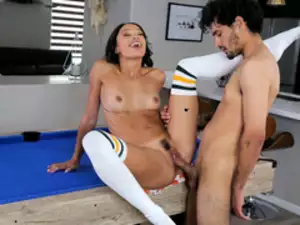 2 years ago
2 years ago
we pick up this scene at the 9:09 mark of this vid clip: http://xhamster.com/movies/290840/lesbian_cop...f70.html---Little did I know that I wouldn't have very long to bask in the moment of the first time a woman had ever made me cum. No sooner had the waves of pleasure finished riding over me than I found myself being forced into a new position by the petite, blonde officer.She leaned against the car and took of her belt. With me facing her, still handcuffed, she put her hand on my shoulder...
 4 years ago
4 years ago
It was about three in the morning when I wandered in. I’d agreed to drive a friend’s car cross-country to his parents’ house, and I was determined to pull it off in record time. After a few hours of sleep to take the edge off, pancakes sounded like just the thing to get me going for another leg of the journey.The empty restaurant matched the empty streets I’d encountered. The Midwest was nothing like the west coast, where the world didn’t stop just because it was after midnight. The only person...
Quickie Sex 3 years ago
3 years ago
The next time I saw Millie was three days later when she was cutting her grass. Cutting grass right is work but watching Millie cut grass is a pleasure. She was wearing a pair of tight purple short-shorts, a black sports bra and a pair of tennis shoes. She worked fast behind a gas powered push mower. I was going to finish my edging and stuff and blow off the driveway when I saw her. She didn't see me, she was fully focused on what she was doing. Her arm was out of the sling, which surprised...
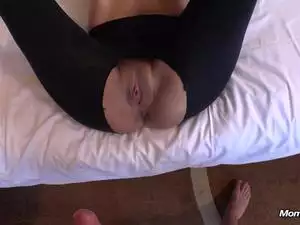 3 years ago
3 years ago
Purge, purge, purge, hotter, hotter, hotter, how it is, true story, more forthcoming. Over the years, I have gone out walking very early mornings, to prance and strut, usually wearing shorts or short-shorts, with tennis shoes or flip flops, sometimes bringing dresses and high heels along if the environment right. It was mostly for my own experiences to test how I truly felt and later became for my own pleasures, although simultaneously sorta expecting and/or looking for another hard dick to...
 2 years ago
2 years ago
She sat quietly in her dorm room, diligently reviewing her days field work as she did every day. She loved her studies, but despised the Loneliness of her nights. She needed more..she yearned for a break that would allow her to be someone vastly different than the upstanding, proper, polite, and perfect student she had worked so hard to become. Hidden Deep within her mind, she quietly fantasized about being controlled, to be relieved on occasion, of the persona of her own creation...to be made...
 2 years ago
2 years ago
A boring day around the house, cooking and cleaning, becomes much more exciting for 42-year-old Kali Ryder when her daughter’s boyfriend shows up. He’s Juan “El Caballo” Loco. Juan, who looks like a kid, doesn’t seem disappointed when Ms. Ryder tells him that Pam, her daughter, won’t be home for a while. He’s happy to just sit and talk with Ms. Ryder. She’s a cool mom. Kali is intrigued by Juan’s tattoos. It quickly becomes an...
xmoviesforyou 2 years ago
2 years ago
I travel by car in a valley in the rural North. The narrow road winds along the side of the valley. Houses lie scattered along the road. It is summer time. The hour is late, and it starts to get dark. I need to take a leak and look for a place to stop. A tree-lined lane takes off to the right a little further ahead. There is a milk ramp by the road just in front of where the lane takes off. No one is likely to deliver milk at this time of day, so I decide to park there. I step out of the car...
Fetish 3 years ago
3 years ago
The rest of the summer had passed happily, blackout notwithstanding. Scarlet’s parents had swung by with the rest of her things, and Alan enjoyed meeting them and her brother. A few days later Alan’s folks and Mrs. Van Devanter drove the three of them and their stuff back to campus, Mr. Van Devanter was still in Cambridge with Pauline, getting her settled into her dorm and attending some parent orientation and welcoming events. He was on cloud nine, one of his offspring at last following in his...
 4 years ago
4 years ago
Nicole took some time to compose herself. Running to the toilet had been a mistake but what else could she have done? This was going too far. She knew there was nothing she could do. Barry's trap was perfect. She loved her sister too much to deny her Barry's money and she believed in her own career too much to let a geek like Barry ruin it. But there had to be some limits! She tried to compose herself before walking out. It's hard to be dignified when you are naked and the person you are...
 1 year ago
1 year ago
Gabby's cunt flooded in overdrive her tits aching from the constant attention of CJ's busy hands. By four am Gabby collapsed on to CJ's chest a tit hanging to each side as he pulled on her nipples as she gently moved bck and forth on his cock. hey sharea slow long aritc kiss like young teenagers apart from her cunt was still half packed with his cock as they fell alseep. Gabby woke alone covered on the bed, assuming that CJ had left her hands wandered to her raw cunt sticky cunt and legs. Dry...
Erotic 4 years ago
4 years ago
Sunday afternoon, Nov 5, 2028Addie got home a little after four. She still looked the same; she acted like Addie, sounded like Addie, greeted me with the kiss I expected. I don’t know what else I expected. Maybe it was me with the guilty conscience. Her first words were, “Kids? Where are they?”At least it wasn’t, “Who the hell did you fuck last night?”“They’re spending the night with Nicki. She wanted to take them to a movie.”She frowned, “That’s disappointing. I like coming home to them.”I...
Wife Lovers 2 years ago
2 years ago
Mouth and Pussy Fuckers Part Two I quickly go to work as Tony cums all over your face, leaving his hot juices on and in your mouth and hair as I tie your arms to the wooden supports and your body to the tee piece, spreading your legs wide and securing them so you cannot move. I then attach the cabling and the electric hoist which lifts and holds you horizontally, about a metre off the surface of the bed. You are totally available now and unable to do anything except take the pleasure about to...
 4 years ago
4 years ago
Hi friend I m Vikram ek bar fir se aap logo k leye ek real story la k aya hu Ye story mere mom or mere ek frnd ki hai is na mere story pdhi or mere se mila or fir mere maa se mila or us se dosti kari mai aapne dost k bare mai bhi bata du name Ashish hai Delhi se hai height 5.11..tall..brown Color..athletic body..good looking..6.5 land ka size Mere maa k naam sapna hai hum ek midail class family se fairdabad mai rehta hu mere ghar mai mai mummy papa hai bs papa ka aapna kam hai mai kabhi kam pe...
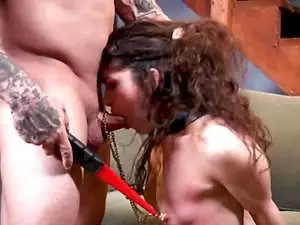 2 years ago
2 years ago
About six months after Rod was hired, and the couple’s sex life was restarted, Sam’s health took a sudden turn for the worse. He required more of Martha’s care so they asked Rod to move in with them to take over most of the farm work. The young man was happy to live away from home for the first time, especially since Martha fucked him regularly. Even though Sam could only watch and touch now, he still felt included. After another six months of deteriorating health, Sam died. Following the...
 2 years ago
2 years ago
"One! Boy that Laura sure be one nasty pussy slut! You can smell her from out here," the loud voice proclaimed for the world to hear. 'Oh God! Someone will hear her and my reputation will be destroyed!' thought Laura. Reluctantly, Laura pulled the fingers from her sex and quickly got up off the floor. She tore off her panty-apron and made her way to the door. "TWO! - Last night that white bitch done sucked my c-" Laura opened the door open as fast as she could to stop whoever it was...
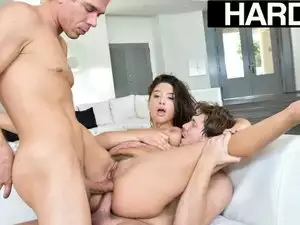 4 years ago
4 years ago
My Friends Hot DaughterNatalie, your Dad asked me to talk with you because he is concerned about how quick you are growing up and some of the friends you hang around with. I took the liberty of going through your room and I found these things. What sort of f******n year old wears thong panties and has not one, not two but three sex toys. Don't try those fake tears with me, I have dealt with many girls like you. Your Dad has asked me to teach you about what happens to f******n year old sluts....
 4 years ago
4 years ago
Gayle Sloan watched her husband until he was out of sight in the trees and heaved a sigh of relief. She was glad that Andy was coming out of his terrible depression; his renewed interest in her, as well as his present headlong pursuit of Joan Wright, was a healthy sign that he was recovering from the devastating blow to his ego when he had been replaced by Buzz Henson as leader of this small band of aviation castaways. She knew that Buzz was working in the plane; she had noted, after he had...
 3 years ago
3 years ago
Hi; dosto me Rahul from Jalandhar Punjab se hu. The story which I m going to narrate is my real story. I will continue this story in Hindi. Ye aaj se 4 saal pehle ki baat hai.tab meri umar 20 saal ki thi.meri mousi; jo ke meri aunty b thi bhut hi khubsurat thi.patli kamar. Chote chote boobs.main dil dil main unko bhut chahta tha or unse sex karna chahta tha bat kabih moka hi mila. Bat unhe dekh kar mera bura haal ho jata tha. Mera toh kya har kisi yahi haal hota tha unko dekh kar. Us time mein...
 2 years ago
2 years ago
Latoya was shocked. She had seen the men talking and they had looked at her a few times. But now her Daddy had said he had sold her! He sold her! She was stunned as Dazhawn took her hand and led her to his car. She just compliantly accepted what the men wanted. Dazhawn was glad about that. He didn’t want the slut to raise a ruckus out in the open where cops might be called. On the drive to their destination, Latoya thought about what had just transpired. She had given herself to Tyrone. At...
 4 years ago
4 years ago
In this part of the story, Riya goes to her Aunt’s house: The trip was uneventful, they unloaded their luggage. As Riya paid the driver she was conscious of his eyes taking in her figure and her curves. He licked his lips as she counted rupees into his hand, and then they were gone. Riya’s auntie welcomed them, she was a stately lady in her mid 50’s, soft-spoken and gentle, nothing seemed to upset her quiet countenance. Riya had always thought she would like to be just like her aunt. Being in...
 2 years ago
2 years ago
Day 263: “See ‘em how?” Dulgan pressed. John’s hands motioned aimlessly. “Like they’re really here. In this room with us right now. There. There, and there.” He pointed. Dulgan walked over to one spot he’d indicated. Vafthundryr shifted, so they wouldn’t ‘collide’. “Here?” The Dwimar asked. “He moved.” John’s finger indicated. Dulgan peered in the direction curiously. “I see nothin’. Wha’ do they loo’ like?” John kept his finger indicating Vafthundryr. “A Frost Giant, Vafthundryr is...
 4 years ago
4 years ago
Author Note: I would like to thank Hematoma for letting me do this fun adaptation of her game. Many of the characters I will be using were either her design, though there might be cameos of other PCs from the game. This story takes place in an alternate timeline where the party never formed. Silvan has been on his own and found his monsters elsewhere. I'll try to get images up in the character screen to show better detail of how I imagine them looking but for now with the minotaur at least I...
Fantasy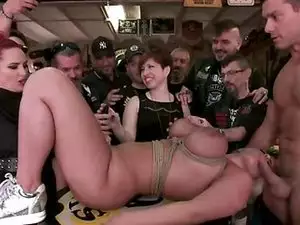 2 years ago
2 years ago
I woke in my cage to the smell of shit and piss. Looking around me I saw that all of the cages were now filled with naked boys or girls. The boys looked very similar to me. The girls seemed to fall into three different groups. One group was of tall white blonde girls with almost no tits. The second group was girls that still had a bit of baby fat, were slightly tanned brunettes, and had cone shaped breasts. Finally, the third group had fully developed tits, black hair and flared hips. The...
 1 year ago
1 year ago
I’d been married for more than 10 years. I fantasized about men but never had any experiences with men until my marriage ended. Once I started exploring the world of hooking up online, it was hard to turn back. I’m a good looking, muscular, masculine guy about 40 years old at the time of this story. I had been chatting with this guy who called himself Freddy for about a month. Latino, around 30, worked in the neighborhood where I lived and worked. He didn’t send a picture because he was...
Gay 4 years ago
4 years ago
1996 - 1997 Well, I survived the ‘96 election. As close fought elections went, this was cleaner than most, simply because neither of us gave the other any dirt to throw. I’m not talking about our records as public servants, but about the personal stuff. By now my life was an open book. What was Steve Rymark going to accuse me of, killing my brother? Please! Old news! As for him, believe me we looked! His zipper seemed tighter than mine. Donna Rymark simply glowed as she grew bigger during...
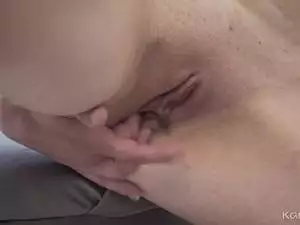 3 years ago
3 years ago
I admit it, I am a big pervert. I am simply in love with pussy. If asked am I a butt and legs man or breast man, I always cop to butts and legs. It’s true I love them. But the truth is that I am a pussy man! I LOVE PUSSY! But what makes me a pervert is my view of sex. I don’t have any limitations unless it’s just that I’m just not attracted to the girl. If the person is young, who cares? Are they cute and is their body nice? That’s all that matters. Are they a relative? Who cares? Are they cute...
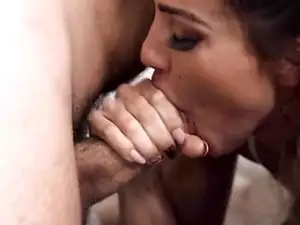 4 years ago
4 years ago
While we were struggling with the smallest rhino I could see Goondoe's people were all assholes and elbows while they worked. Even the boys and girls were helping everywhere they could. Mass mating ceremony or not the meat had to be taken care of. They didn't necessarily have to do everything today, but they did need to gut, skin, and at least partially cut up the unexpected bounty. Of course we had the same jobs to deal with. Actually, it wasn't as much of a task as a bison or aurochs...
 4 years ago
4 years ago
Why did it have to be this way? He was just a dorky kid a few years ago. Now, he is definitely grown up. He comes home from college every weekend, making me long for him. Ugh, why did I get married so young? I have always been so rash. Seeing him every week just helps confirm that I am not with the person that I was intended to be with. What makes it worse is that he is with one of my very best friends. This is so wrong on so many levels. One weekend, when he was home, we got to talking about...
Straight Sex 3 years ago
3 years ago
Sue had a mom that was a whore. Her mom was very popular because she had huge tits and a big ass. She also loved anal sex. She was a sex freak. She loved gang bangs, stripping, deep throat, and loved women as well. She did a strip tease for a bachelor party and then fucked every guy there. She sucked the groom to be cock while the men lined up and fucked her cunt and ass. It was at this party that she got knocked up and had no idea who the daddy was. Even while she was huge with c***d the men...
 3 years ago
3 years ago
Preston Whitcomb, in his Newark studio apartment, rolled out of bed from a night of restless sleep and poured himself a beer. Old newspapers were scattered about. Unwashed plates on which he ate his microwavable meals were fixed to the coffee table. A pile of laundry surrounded his bed. A wilted plant lay half-dead on the window sill. He had a view of an alleyway a couple of floors below, and when he looked straight out of his window he stared at a brick wall. The only thing that Preston kept...
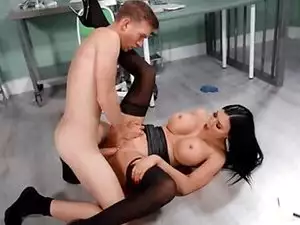 2 years ago
2 years ago
PRODIGY Katrina?s Interrogation By Cheetah Onyx In the Devil?s soup bowl The Heat In Arizona is a brutal merciless entity that bathes you constantly in it?s drenching jaws of heat. The room was designed for the occupant?s suffering in mind it was a trifle over six foot in height and just and a tad under four foot wide. The Prisoner?s arms are clamped at the wrists with heavy metal bands attached to oily black chain links that are connected to the concrete roof of the box, which has 3...
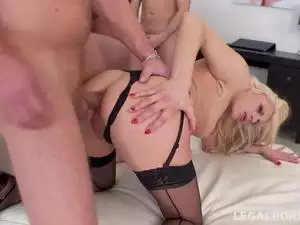 3 years ago
3 years ago
What could possibly connect a missing space shuttle, a winged demon on a killing spree in the dead of night, and a militia group? Mulder and Scully are called in to investigate what turn out to be linked cases, but why is one of them acting so out of character? (Note: contains only very minor TG) THE X-FILES: OLYMPIA by BobH (c) 2014/2016 [Note: This originally appeared as two separate stories (and part of a third) on another, non-TG website and is set during the 1990s...
 4 years ago
4 years ago
They lay together for a few minutes in silence, Ann rubbing Mattie's breasts gently while Mattie breathed deeply with her eyes closed. Then Ann began to speak. "Was that your first time?" Mattie opened her eyes. "Yes. I've, you know, done things with my hands before... " "Masturbated yourself?" "Uh-huh. But I've never had an orgasm with another person. Not a boy or a girl." Mattie seemed to be talking almost like a child. She was staring at Ann with a look that was something...
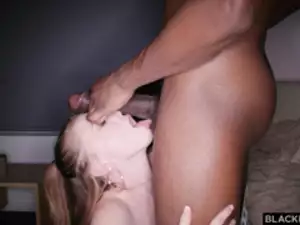 4 years ago
4 years ago
I am a thirty-five-year-old project manager. My name is Jill and I have been with the company for ten years. I have a decent body: 5’9” 34-24-38. My DD-sized breasts are round and firm. My nipples are pink and perky. I’m a little hippy, but the women I like, like my curves. After five years of marriage and two children, and a divorce, I’ve managed to maintain a sexy body. I’m fair–skinned white woman with shoulder length blond hair. I love sex. I’m a visual person. But I also love the taste,...
Quickie Sex 2 years ago
2 years ago
Soccer Star Zoe Parker has just led her team to victory and now it’s time to enjoy all the benefits! After a quick interview, she heads to the showers. An out of breath, Yhivi arrives to the interview, only to discover it has already taken place. Not wanting to loose the story she’s promised her editor’s for, she musters her pride, and enters the bathroom. As Zoe wipes off her wet body from the shower, Yhivi is standing there. Zoe knows she should be freaked out however, she...
xmoviesforyou 2 years ago
2 years ago
Es war 1:00 Uhr nachts. Ich war noch wach. In diesem komischen Bus konnte ich ja auch kein Auge zu kriegen. Denn: War der Bus unbequem, vor allem die fordere Sitzreihe, auf der Ich schlafen sollte. Lagen hinter mir Ramona und Caroline. Ramona ist 19, 1,67 m groß, schlank, blond, einen tollen, schönen, runden Hintern und hat eine C - Körbchengröße. Caroline war 18, 1,76 m groß, auch schlank und hat auch einen total erotischen Hintern. Allerdings hat sie schwarze Haare und ihre Brüste sind...
 4 years ago
4 years ago
I hadn't planned for this 'date', it just happened out of the chance. It was a friday afternoon, I had skipped school that day (the lessons at schedule had been unimportant and uninteresting to me, I had written myself a faked excuse) and, instead, spent the day in Chemnitz (the next bigger city from the town where I lived). Now, in the afternoon, I was taking the bus back home - a 45 minutes trip, the bus was not going the shortest possible route but served the smaller villages left and...
 3 years ago
3 years ago
Frances grinned as Reg’s cheeks flared red. “You do remember that, I see. Anyway, back to the question. What do you think of employing them?” “As a first step with no other pre-ordained commitments, I am happy with that. Giving the girls an opportunity to show their mettle is good. Can I suggest, Frances, that we take up the idea of them officially being employed by your father’s business? That sounds like good business sense. The other parents can make their contributions to him, in...
 2 years ago
2 years ago
Cindy and I had made arrangements to take a road trip out to San Francisco for Labor Day. The idea was that we were going to take off work on Friday and make it into a four day weekend. Cindy suggested that we pick up our friend David along the way to share the driving as well as getting him out of town for a bit. We gave him a call and everything was all set.We left really early on Friday and got to David's place around 7am. He was ready and waiting so it was off to San Francisco for us! We...
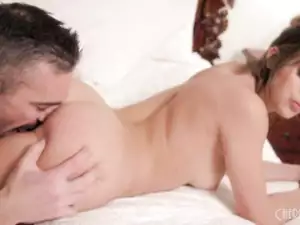 3 years ago
3 years ago
Sorry that its been so long since my last story, but my motivation and my inspiration have been gone for a very long time. I plan on finishing this series and then heading off to a tropical island to find some more inspiration. Now, let’s get back to the story. John carried me over to the bed and I smiled hugely as I knew what was to come. He dropped me roughly onto the bed and removed both of our robes before pouncing on top of me. His hard calloused skin caressed mine as he moved, and even...
 1 year ago
1 year ago
I was twenty-five. I had just gotten out of the Army and headed home to visit my family. My first stop was my Sister Peg’s house. My brother in law, Mike, was vet so he felt he owed me a drink when I got there. I dropped my duffle in the spare bedroom and headed off to the American Legion Hall. I was up for a drink and because I was a new “vet” I got plenty of guys buying me drinks. It was late afternoon when Mike and me started drinking and the hall started to fill as the evening wore on....
Incest 2 years ago
2 years ago
The characters in this story are property of Marvel comics. I have used them in honor of the comic series and admiration for the characters. This story is original and is in no way tied to any of the canons of the Marvel Universe (to save myself the grief of working with time lines). This story contains adult material of a sexual nature. If it is illegal for you to view such material, turn back now. This work is copyrighted to the author. Do not post this on any other site or use it for...
 2 years ago
2 years ago
You know my friends used to say I was a real bad ass in high school. Probably cause of all the times I used to fight any one who crossed me or cause of the way I'd always smart off to the teachers. I tell you that so you can get a better understanding of the story I'm bout to tell you. It was my Senior Year. And I was flunkin' only one class (surprisingly). It was English. Ms. Hannah was the teacher. And man, she was a blonde bomb shell. She musta stood at least 5 foot 9. She was 36 years...
MILF 3 years ago
3 years ago
I walked towards the door and saw her through the small window. 'Oh, there she is the barely legal dazzling brunette I have babysitting my son. What I wouldn't do to give a ride, and I don't mean in my car. Shit, she is wearing a dress like that to a babysitting gig? Is she trying to turn me on now?'I opened the door and saw her through the glass storm door. She just smiled and waved for a few seconds, and I had to return the favor.I opened the storm door too. "Hello, Alli, you are looking...
Taboo 4 years ago
4 years ago
Idol of Meyhem By Morpheus Opening up the crate, Dr. Caroline Marcus looked down with boredom at the contents. As assitant director in charge of acquisitions for the museum, this new batch of items seemed rather dull to her. Nothing of any particular interest. Holding her nose in disgust, she started carefully pulling the artifacts out, not wanting to damage anything. Another, smaller museum had recently been forced to shut down, and Caroline had worked hard to get some of the...
 2 years ago
2 years ago
It was my first day on the job, the first day of my year in industry for my degree course and, though it may seem strange, I knew no-one in the company, the job had been arranged by the college. All I knew was the company was a publishing house, I had to report to a Mrs. Fenner and that I was to be working as an editors assistant, my course tutor in 'Reporting' had said that the job would be an eye opener, I hadn't understood the wink he gave when he made the comment. So here I was at the...
 4 years ago
4 years ago
She had always been very rough with him, the big woman, but this morning was exceptional, and different. She had come home late from her usual soiree with other local mistresses and had whipped him mercilessly for no apparent reason; she had woken him during the early hours several times, tormented him and had her arse licked while she applied her dildo or had him lick her till she grunted out yet another orgasm, before serving him with cane or whip. Now morning was here she face sat him;...
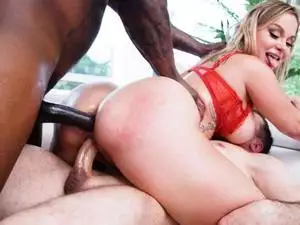 2 years ago
2 years ago
Booty-blessed blonde Katalina Kyle looks scrumptious in a skimpy red number, seductively teasing the camera. The freaky fuck doll strips and spreads her sweet holes through a stellar intro, flaunting big boobs and a robust build. When pro studs Rob Piper and John Strong step in, Katalina gets directly down to threesome business. The thicc beauty kneels to the ground for nasty cocksucking, slobbering over her luscious, huge knockers as she slurps. She hops onto Rob’s lap to ride his big...
xmoviesforyou 2 years ago
2 years ago
I had been relating a story which began when I was 3 1/2 years old up to when I was 16. It was about the strange relationship I had had with my mother who initially allowed me to breast feed along with my my little sisters when I asked her if I could do that too. Later, at the age of about 10 years, I had gotten particularly horny and went to her bedroom and asked if I could "do that again," since she was still nursing the most recent arrival--the fifth since I had first asked her the same...
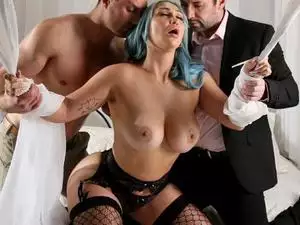 2 years ago
2 years ago
Curvacious and overly sexed up wife Nina is kept very satisfied in her marriage from her husband and today she gets a new boy toy plaything Tommy to have some fun with. But before Tommy arrives her husband gives her a special treat ride on the Sybian to get her hot pussy just to the point of cumming when Tommy takes over enjoying the sweet taste of her wet pussy juices and the back of her throat as she swallows every inch of his cock in her mouth. Nina makes sure her husband is stroking his...
xmoviesforyou 3 years ago
3 years ago
Many of you may have read part of Greta's story by now. If you have, you can understand I played a pivotal role in it. There are facts, even now, which Greta did not and does not know. Let me try to fill in the gaps. My name is Samantha Kramer and I am a registered nurse with the degrees, BSN, MSN, and M.Ed in school counseling. I am well qualified to teach health and sex education and to provide the care a sick or injured student might require. I first spent time with Greta during her...
 3 years ago
3 years ago
Stepping inside the door, I kick my heels off, and wipe my forehead.. the warm hot air seems to cling to my skin.. I place my purchases on the counter and grab the chilled bottle of white wine and quickly pull it close to my ample cleavage, feeling the condensation drip down and seep into my bra. Holding the bottle to my chest, I stumble around trying to pull my stockings off, thinking of what a perfect day it would be to work on my tan that seems so subtle this year. Quickly I grab a wine...
 4 years ago
4 years ago
My alarm clock went off at 5am. The family wanted to start their trip home at 6am. So when I had showered and my bags were packed, I went over to the bungalow of the family. Sandy and Danny were still in bed when I arrived. The parents were making their bags, so I said I would wake the kids up. Their bags were already made the day before and the clothes they had to wear, were lying ready for them. I went to Danny's room first. He was already awake but was staring at the ceiling. "Good...
 1 year ago
1 year ago
My name is Jack, I am 27 years old and I live by myself. I've been in a few relationships but none of them pleasured me as I liked. I didn't really blame the girls I guess cause they didn't really like my over-active sex drive. I was in a chat room one chilly morning when a girl named "Emilylove22" entered the chat. She came in asking for someone to talk to. As always numerous people IMed her but from the way she described that morning to me she said it was a click. *****Five days after meeting...
Fetish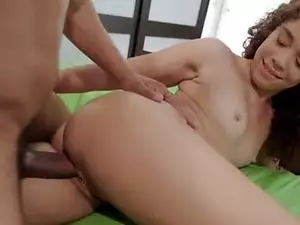 3 years ago
3 years ago
Nicole was in the garage leaning against the side of her husband’s car while Noah buried his adoring face in the abundant flesh of her enormous tits. Her nipples were fully aroused as her son’s best friend moved from side to side, taking turns to suck on each of her nipples while his fingers pressed deeply into the meat of her pliant globes. The eighteen-year-old’s impressive cock was throbbing with heat in her hand, precum already oozing from the head while she lathered the slick flow over the...
 4 years ago
4 years ago
“Well, that was just a stunning performance by you all this morning” intoned Gerald Claxton to his attentive audience of choristers. “And thankyou, Jessie Harper,” he continued. “You really do have the voice of an angel. We are a very lucky choir to have someone with your singing voice as a part of the team ... but a team it still is and we all need each other and we must never forget that ... especially now as we get closer to the end of the year with the choir competition bearing down upon...
 4 years ago
4 years ago
Hi friends if you remember I am Roopa from Bangalore, 23 years old. My figures are 34 28 36 and my height is 5 feet 6 inches. I have posted my adventure in train last time (group category)… This is one more of my experiences which I had with my lecturer… When I was in first year of my engineering, I was very weak in engineering graphics. As I told you in my first post (train experience) I like to show off my body to older men. But may be it started when I was growing up and I observed men...